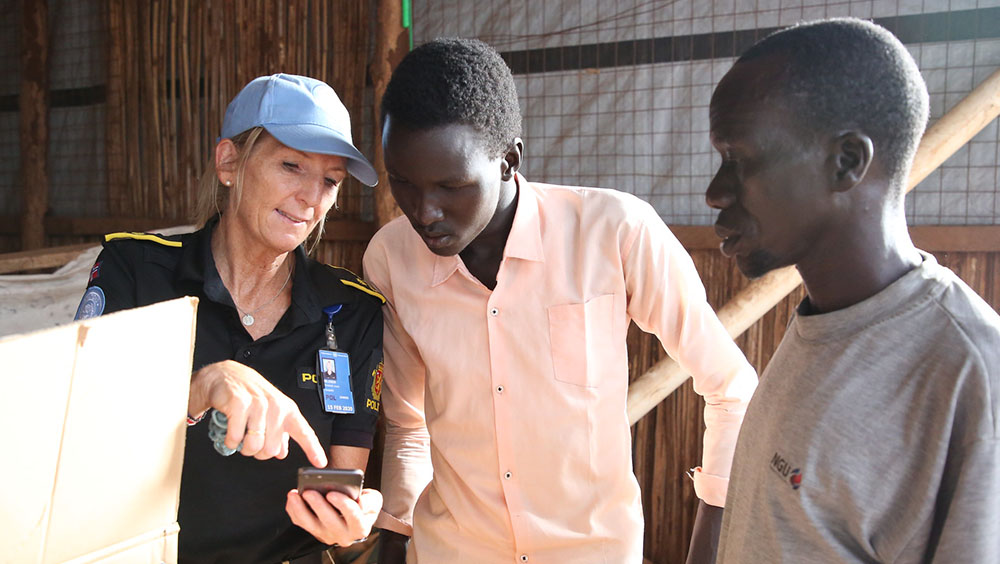Entrepreneurs of International Criminal Justice? An analysis of voluntary contributions from Norway to the International Criminal Court
The International Criminal Court (ICC), established over 20 years ago, is the only permanent international mechanism that can hold individuals accountable for war crimes, crimes against humanity, genocide, and crimes of aggression. Due to recent wars and conflicts, it has gained renewed interest in the media and politics. Norway's contributions are explored through the analysis of publicly available documents produced by the Ministry of Foreign Affairs and interviews with experts. In addition to the mandatory obligations, Norway has a history of providing voluntary contributions to the court. Monetary contributions are the most measurable, but Norway has also provided practical support and vocal endorsement to the ICC. A significant portion of the contributions is directed towards capacity-building measures and restitution for victims of atrocities, particularly victims of gender-based and sexual violence.
One key finding is that Norwegian support for the ICC changed in nature around 2015, with a decrease in funding and endorsements. Nevertheless, Norway has still invested a considerable amount, and the main finding is that by utilizing foreign policy as a tool of influence, Norway has been prominent in its support for the ICC since its establishment in 2002. It is therefore believed that they can be regarded as entrepreneurs within international criminal justice.
Norwegian-funded support for migrants in the EU: A critical discourse analysis of the EEA Grants' contribution to helping migrants
Sofie Stensø's master's thesis in criminology is titled 'Norwegian-funded support for migrants in the EU: A critical discourse analysis of the EEA Grants' contribution to helping migrants.' Sofie explores how Norwegian-funded EEA Grants are used to assist migrants in EU countries through a critical discourse analysis. The sample consists of 41 projects aimed at helping migrants during the project period from 2014 to 2021. The projects indicate that migrants in recipient countries experience human rights violations, discrimination, and are generally a marginalized group in society.
Based on how the projects aim to address these issues, they operate on four levels: at the international and national level, there is greater involvement of governmental and intergovernmental organizations in arranging the projects, while at the societal and individual levels, non-governmental organizations organize the projects. The findings show that when projects funded by the EEA Grants are intended to help migrants in EU countries, a wide variety of actors and activities are involved. Stensø argues that it is in Norway's interest for European countries to harmonize so that Norway does not appear as the most attractive destination for migrants. By implementing international laws, developing migration management, promoting solidarity in the population, and offering personal assistance to migrants, recipient countries can become more attractive to migrants and indirectly influence the migrants' choice of destination. In this way, Norway can maintain its reputation as "good," while still conducting migration control.
Development aid as a tool for migration control: Norwegian interests and humanitarianism. A qualitative discourse analysis of Norwegian aid policy as a tool for migration and border control.
Nora Hahn investigates how Norwegian aid policy is understood in the context of migration issues. The master's thesis focuses on the Solidarity Fund, an aid initiative established in 2019 with a budget of 5 billion NOK, aiming to improve conditions for people on the move and strengthen host countries' ability to care for migrants. The methodology involves discourse analysis of interviews with experts with broad knowledge of both the political and bureaucratic aspects of aid policy in relation to migration issues.
Hahn finds that there is a connection between Norwegian aid policy and migration issues. The main finding is the realpolitik influence of the humanitarian discourse on the field of migration and how it intertwines with aid policy in different ways. One way is by camouflaging the humanitarian discourse with restrictive policy development. Another is that aid policy facilitates migration agreements that involve return. At the same time, emphasis is placed on how return is considered a humanitarian practice by maintaining the welfare state and citizen's security. Overall, the findings shed light on the underlying structures, politics, and power dynamics operating behind the humanitarian discourse, which will have implications for Norwegian aid policy in the context of migration.
